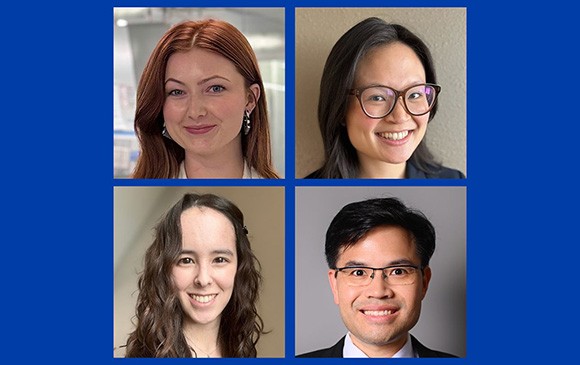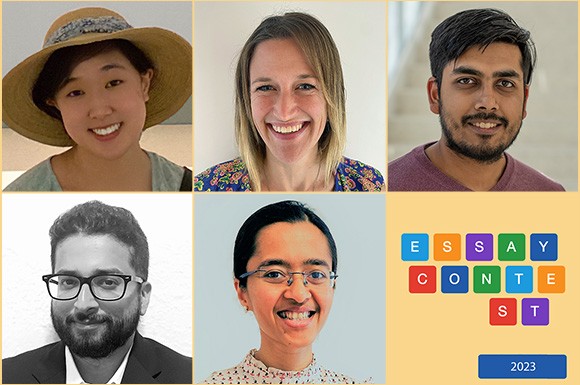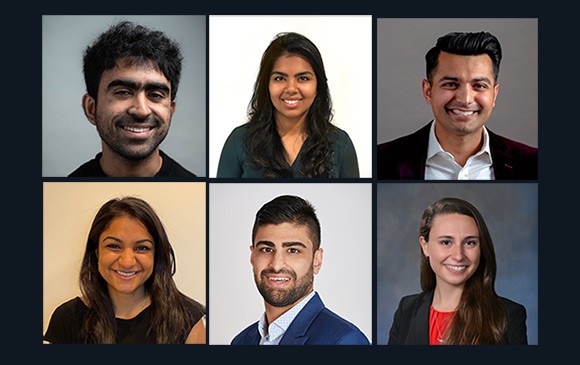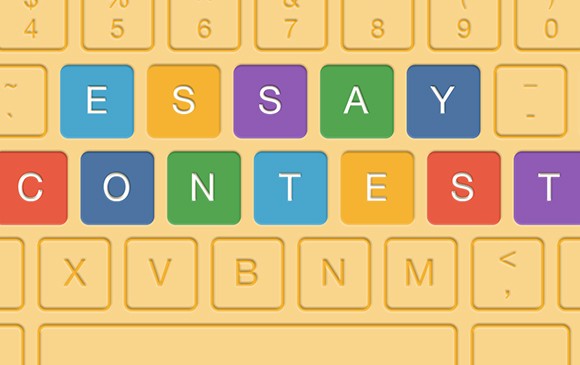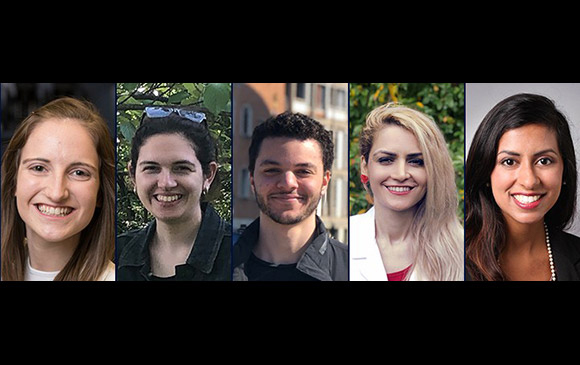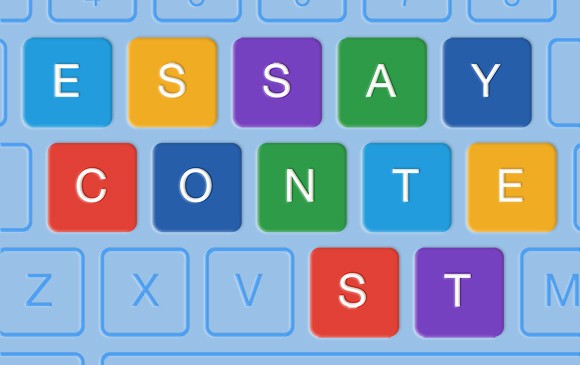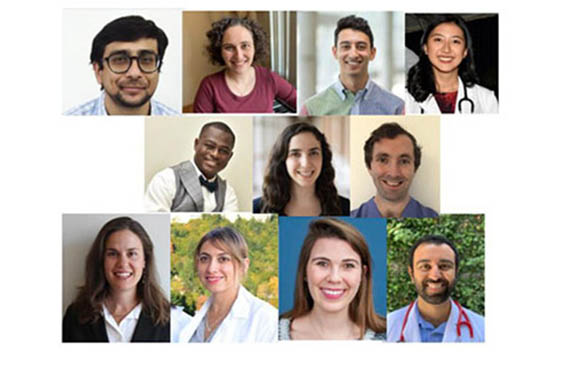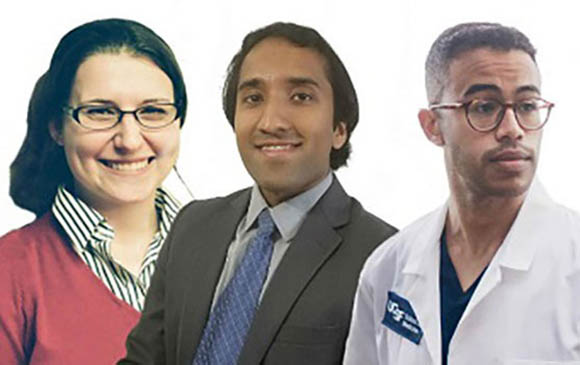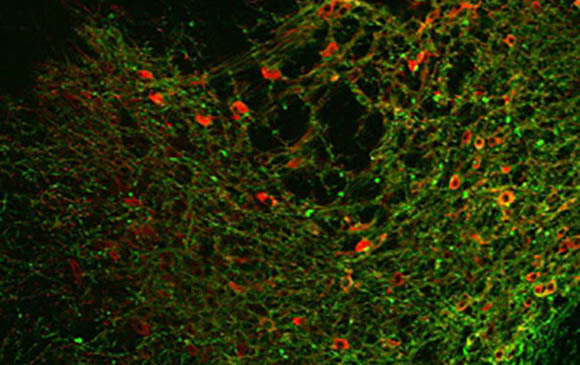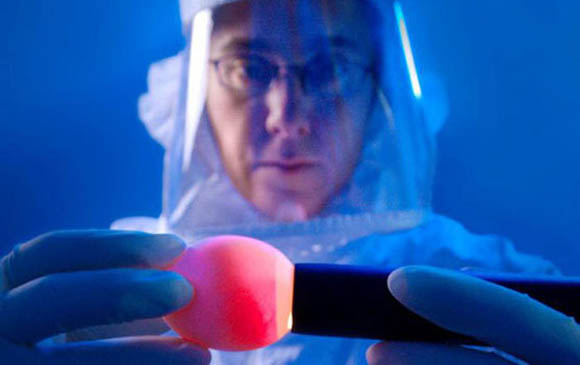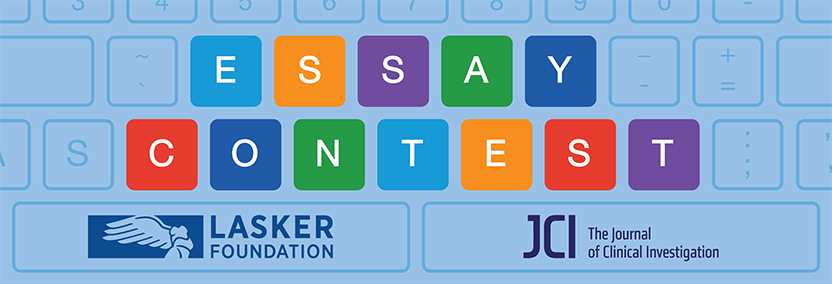
Congratulations to the 2025 Essay Contest winners!
About the Contest
The Lasker Essay Contest engages early career scientists and clinicians from the US and around the globe in a discussion about big questions in biology and medicine and the role of biomedical research in our society today. The Contest aims to build skills in communicating important medical and scientific issues to broad audiences. The topic is announced annually in early February, and winners are announced in mid-July.
Eligibility
The Contest is open to medical school students, interns, residents, and fellows; doctoral students and postdoctoral fellows in biomedical sciences; and graduate students training in health professions programs e.g., public health, dental, pharmacy, etc who are currently doing research. Applicants (from the US or any other countries) must be currently participating in an educational program. This program may be located in any country.
Prizes
Winners will receive up to $5,000. Monetary prizes will be directed to the winner’s university to be used towards the winner’s educational expenses.
Guidelines
Essays should be 800 words or less and must be written in English. We allow only one essay submission per applicant, and the essay must be written by a single author. The use of any generative AI tool (e.g. ChatGPT) in composing an entry is prohibited – all essays will be screened with software designed to detect use of AI. Essays need to be original; content previously published will be disqualified. The file containing the essay should include the essay title and the applicant’s name, email, and institutional affiliation. The 800-word limit applies to the body of the essay. Field-specific scientific jargon should be avoided or explained.
Evaluation Criteria
Essays will be evaluated based on their originality, quality of writing, style, and clarity. Essays that are not written in English or are longer than 800 words will not be considered.
Publication
The winning essays will be published in the July issue of The Journal of Clinical Investigation.
All Winners
Read the Winning Essays
2025
Anna Bright
Sending Science Down Yonder
Connie Cai
School-Based Health Centers and Inspiring the Next Generation of Biomedical Leaders
Shen-Han Lee
Biomedical Education in the Era of Large Language Models
Amanda N. Pinski
Are You Listening?
2024
Kevin S. Blake
Missing microbiomes: global underrepresentation restricts who research will benefit
Catherine M. Bridges
Illuminating maternal sepsis: a call for improved recognition and prevention
Andrea M. Maxwell
What happens to the brain during pregnancy?
A Subashan Vadibeler
The (unresolved) antibody paradox
Sarah Voss
The enemy of my enemy is my friend
2023
Allison R. Chen
Research Training in an AI World
Louise O. Downs
Is a Test Better Than No Test When There Is No Treatment?
Ayush Kumar
Using HG1222 — A Perspective Into the Ethics of Collecting Biospecimens
Salman E. Qasim
The Human Brain: The Final Frontier and the Wild West
Sneha P. Rath
Cementing the Bricks
2022
Kaelyn Cummins
Microbes, Medicine, and Astronauts: Reflections on a Collaborative Project
Azmina Karukappadath
Two Fields, One Dream
Hussain Lalani
I Would Be Scared if I Heard That Too
Rutvij Merchant
Pathways to Global Health Equity: More Seats, Fresh Perspectives
Kirti Nath
Puzzles
Avik Ray
Unified Diversity: The Team Game
2021
Ziad Ali
What Happens Now?
Banafsheh Nazari
Embracing Technology, the Pandemic’s Lesson for Us
Trisha Pasricha
One more question
Miriam Saffern
My Mother is a Layperson
Adina Schonbrun
The Cornerstone of Scientific Success: Unsung Frontline Heroes of the COVID-19 Pandemic
2020
Emily Ashkin
Michael Bishop: A Scientist for the Next Generation
David Basta
For the Love of Science
Avash Das
Michael Brown and Joseph Goldstein: Tribute to My Inspiration
William Dunn
Sweet Are the Uses of Adversity
Safwan Elkhatib
Salk, Sabin, and the Crown of Health
Laurel Gabler
Putting “People’s Health in People’s Hands”: How the Bangs Inspired my Personal Journey
Kwabena Kusi-Mensah
As One Single Tribe: Thinking Globally and Locally
Lisa Learman
With the Corn, Against the Grain
Olivia Lucero
Genetics as a Tool for Generational Empowerment
Hannah Mason
My Gym Genie: Gathering Inspiration from Dr. John Schiller
Samantha Wong
Fauci: Science as a Voice of Reason
2019
Grace Beggs
Game On: Smartphone Technology for Science Education
Peter John
Making it All Fun and Games in the Biomedical Sciences
Dereck Paul
Pathways: A National Mentorship Program for High School Students Underrepresented in Science and Medicine
2018
David Hartmann
Cancer Survivors: Outstanding Advocates for Trust in Science
Debra Karhson
A Verification Vaccine for Social Contagion
Caroline Vissers
Diversity at the Top of the Social Media Signaling Cascade
2017
Abigail Cline
Science and Cinema: From the Benchtop to the Big Screen
Tammy Tran
Science Is Everywhere: Unexpected Science Encounters in the Course of Everyday Life
Michael Wu
Search for Science: Smart Search-Linked Discussion Forums
Jennifer Bratburd
Breaking through Barriers to Science with Citizen Science
Apurva Lunia
Dissemination of Biomedical Research Via Multimedia Platforms Using Existing Healthcare Frameworks
Jessica Sagers
Let’s Get Real: (Re)making Scientists Into People
2016
David Ottenheimer
Modern Neuroscience Has the Tools to Treat Psychiatric Illness
Therese Woodring (Korndorf)
Hacking the Bacterial Social Network: Quorum Sensing and the Future of Microbial Management
Unikora Yang
The Cutting Edge of DNA Editing: Translating CRISPR to Improve Human health
2015
Joseph Rathkey
In Silico Modeling as an Ideal Platform for Future Biological Research and Discovery
Stephanie Ng
Depression and the Final Frontier
Omar Toubat
Mastering the Genetic Reprogramming of Cells
2014
Peter Soh
Offering Incentives for Future Scientists
Michael Burel
Catalyzing Broad Public Interest in Scientific Research
Nick Andresen
Crowdsourcing a Medical Research Donation Database
Gregg Gonsalves
Researchers as Advocates and Activists
